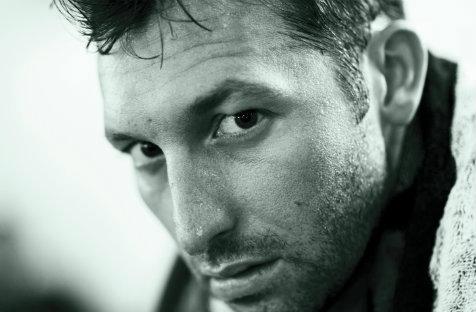When sporting icon Ian Thorpe emerged from retirement to try out for the London Olympics, the media covered his comeback story as it unfolded.
Thorpe’s relationship with the media has been tenuous, at best; an elite sportsman who has been glorified in his successes, while his private life has been intrusively scrutinised. So when Thorpe invited close friend and director Gregor Jordan (Ned Kelly, Two Hands) to shoot a documentary about his comeback, Jordan reiterated to Thorpe that this documentary had to be more reflective and honest than something a TV network could pull together, beyond that of archival footage and third-person commentary.
Jordan’s aim was an accurate reflection of who Thorpe was at that time. ‘A glorified and sanitised version is bullshit,’ Jordan states in the director’s commentary of his subsequent documentary, The Swimmer; ‘no one wants to see that’.
Two questions immediately spring to mind. Why would Thorpe invite a filmmaker to intrude on his preparations during a pivotal juncture in his career? Would Jordan’s first foray into documentary-making, doubled with his friendship with Thorpe, compromise either his storytelling integrity or his friendship?
There is a necessary evil in sports documentaries, such as The Swimmer, when archival footage is a requisite part of the story. In utilising such material, Jordan reminds the audience of Thorpe’s precocious talent in light of his current struggle; a technique that underscores the struggle that Thorpe faces.
However some of Jordan’s storytelling choices do mirror the mainstream media’s coverage of Thorpe’s past, such as his life in Los Angeles. Jordan retells this period of Thorpe’s life verbatim and it offers nothing new. There are a few moments like this throughout the film, which let the story down, especially questions into the swimmer’s private life that mirror tabloid media. If it is supposed to prove a point about the intrusiveness of media reporting, it misfires. It comes across as an awkward attempt to address rumours about Thorpe’s sexuality.
On the other hand, the film does feature some genuine insights into the psychology of an Olympian on the comeback trail. It is at this point of the documentary that something else emerges – Thorpe’s comeback is more than just an attempt at further glory. Jordan does a fine job in exploring Thorpe’s struggle with his identity away from elite swimming, coupled with a new identity within the swimming fraternity – starting from scratch, as an adult. Thorpe freely admits he is not the elite swimmer he once was, and yet states that it is others who have to beat him, and not the other way around. It is an interesting trait that Jordan also captures well – Thorpe often contradicts himself, and is comfortable in expressing it to Jordan.
In the film’s dramatic climax, Jordan finally achieves the balance between artistic integrity and friendship, throughout a documentary that, at times, struggles to maintain it.
Jordan chooses not to follow Thorpe straight after his loss. The restraint in Jordan’s choice was right. In an interview not long afterward, Thorpe allows Jordan to capture him at his most raw – heartbroken, and lost.
Rating: 3 stars out of 5
The Swimmer
Director: Gregor Jordan
Australia, 2012, 57 mins
Rated PG
Distributed by Madman Entertainment
Special features: Deleted scenes; audio commentary with director Gregor Jordan; ‘making of’ featurette.
Rated PG
Actors:
Director:
Format:
Country:
Release:





